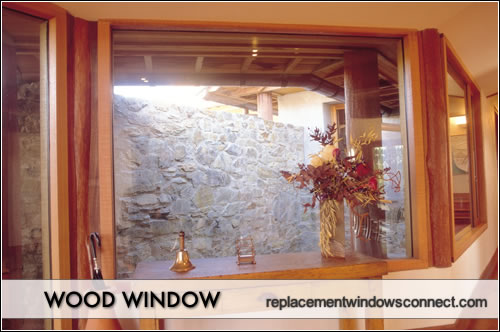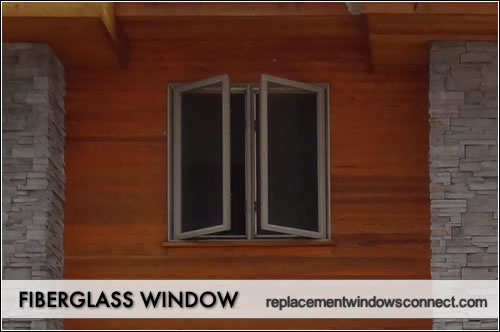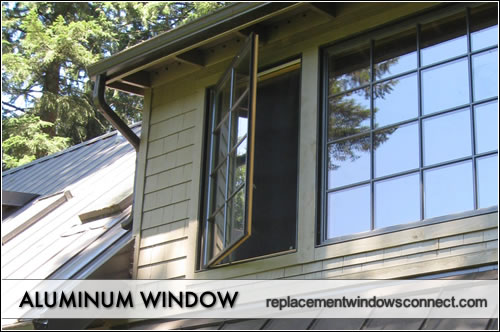Explore the many types of replacement window materials such as vinyl, fiberglass, aluminum, composite and wood clad. Get great links to full articles on glass options, spacers, gas fills, new construction and much more.
If you have any questions about your replacement windows project, send us an email and ask away!
Vinyl Windows

Vinyl windows make up just over half of the entire replacement window market, mainly because they are cost effective and easy to maintain. While some of the early vinyl did not perform very well, the material is actually more energy efficient than many other options.
In addition, they help lower heating and cooling costs and homeowners can have a nice mid range vinyl window installed for $400, which is significantly less than wood clad or fiberglass.
Additional Resources | Vinyl Windows | Vinyl Window Prices

Wood Windows

Wood windows are the most expensive frame material and typically require much more maintenance. The up side is that you can paint the wood any color you choose, but the downside is that you have to repaint them regularly to protect them from rot.
Most of todays wood clad windows come with an exterior cladding that is made of a vinyl, fiberglass or aluminum, which protects the outside and leaves a beautiful looking wood interior that homeowners will have to periodically stain.
Additional Resources | Wood Windows | Wood Window Prices

Fiberglass Windows

Fiberglas won’t warp, crack, peel, or split. Fiberglass is so strong, the frame can be made hollow and filled with insulating material. Fiberglass has excellent resistance to corrosion and rotting and is also good for seaside applications and other chemically sensitive environments.
The material is impervious to termites and other pests, and has self-extinguishing capabilities in case of fire and does not emit toxic fumes.
Only about one percent of all replacement windows sold are made out of fiberglass, but there are a number of advantages to fiberglass that make them worth a second look.
Additional Resources | Fiberglass Windows | Fiberglass Window Prices

Aluminum Windows

Good quality aluminum windows have a thermal barrier that prevents the frame from conducting heat or cold. However, even with the thermal barrier, these window frame types are not as efficient as vinyl or wood. On the other hand, they won’t split warp, or shrink and they will last almost forever.
They are light and easy to install and operate and will provide many years of maintenance-free use. However, if you live near humid, salty air, aluminum isn’t an option because sea air corrodes them.
Additional Resources | Aluminum Windows | Aluminum Window Prices

Composite Windows
Composite can be painted like wood and they’re often stronger and more durable than wood. Fiberglass windows are even stronger than vinyl, more durable in even the most extreme climates, and capable of supporting large expanses of glass.
At the same time, it is only slightly more expensive than vinyl and can actually be painted on-site, giving you a wider choice of colors. If the color fades a little with time, the window can be painted just like wood, but it will not deteriorate structurally even if you don’t paint it.
Additional Resources | Composite Windows

uPVC Windows
Cellular PVC are great window frame types for your home – they are strong, provide excellent flexibility and are very cost effective. uPVC have many benefits that make it a great material choice. Cellular PVC is similar to PVC in some aspects, which is a thermoplastic polymer, but is a more technologically advanced product.
It is relatively new to the home building products world, and is created from a foam extrusion process, making it lighter, stronger, and better insulating than vinyl.
Additional Resources | uPVC Windows | uPVC Windows Prices

Additional Articles
New Construction vs. Replacements



Related Topics
Sierra Pacific Windows Reviews
Alliance Windows Reviews
Window Replacement Cost Estimator




